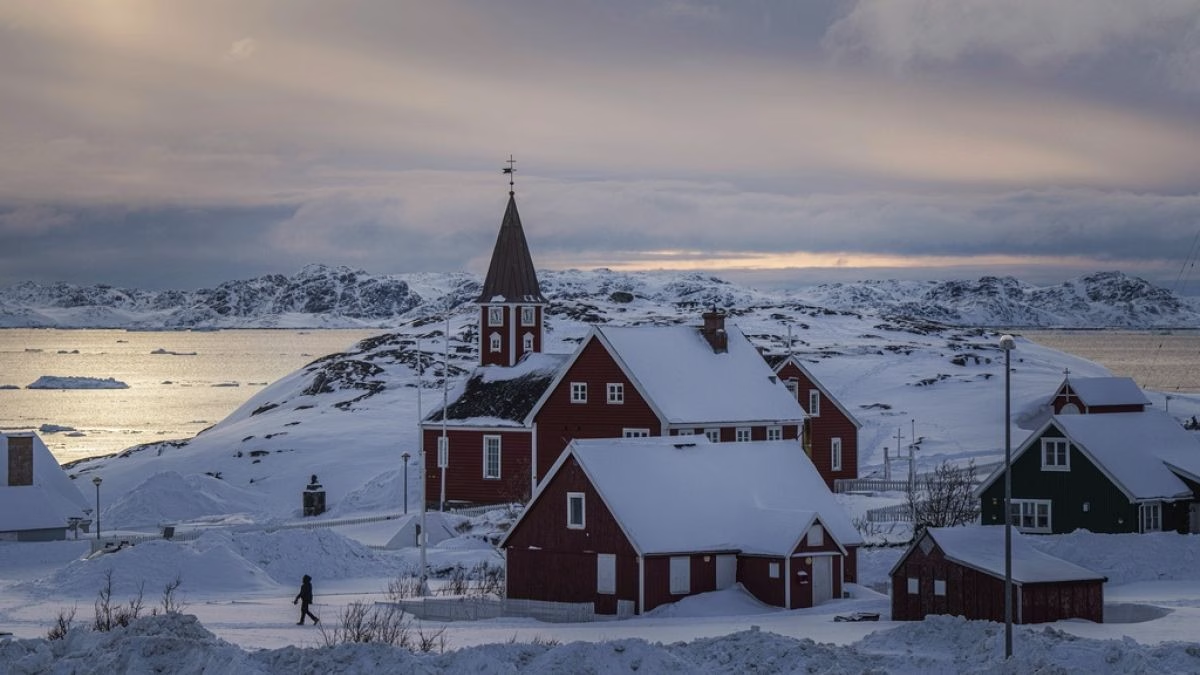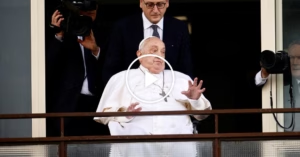During Denmark’s colonial rule in Greenland, Inuit culture was suppressed through assimilation policies. These included an unofficial ban on the Inuit language, forced sterilizations, and the removal of children from their families for placement in Danish homes. These actions have left deep-seated resentment among the Greenlandic population.
Aviaja Rakel Sanimuinaq, an Inuit Greenlander, shaman, and spiritual healer, wears traditional Inuit facial tattoos and aids others in reconnecting with their ancestors to heal generational trauma.
“Growing up, speaking about the connection with spirits was natural for me,” Sanimuinaq recalls. “But my mom told me never to discuss it because it was dangerous. I didn’t understand why, having not experienced the suppression my ancestors faced.”
Aviaja is part of a growing movement of Greenlanders reclaiming their Inuit heritage and spirituality.
Describing her tattoos, she says, “Two lines represent our world and the spirit world, with the distance between them symbolizing the unknown.”
Most Greenlanders, although identifying as Inuit, belong to the Lutheran Church, introduced by Danish missionaries over 300 years ago.
“While Christianity remains sacred, so too are Buddhism, Hinduism, and my work,” says Sanimuinaq. “Our cultural revival is also about achieving equality and acknowledging the legitimacy of our own culture.”
The recent push to reject colonial legacy and the suppression of Inuit traditions as ‘pagan’ is gaining momentum among younger generations who believe healing is possible.
Another ‘charm offensive’ from the USA
From being a Danish colony until 1953, Greenland is now a self-governing entity under Danish control for foreign and defense matters.
US President Donald Trump’s commentary about possibly using military force to control Greenland heightened its geopolitical significance, citing it as essential for American national security.
Visits by Usha Vance, wife of US Vice President JD Vance, and US National Security Adviser Mike Waltz are planned ahead of local elections, including stops in its capital, Nuuk, and its second-largest town, Sisimiut, with potential engagement at the island’s sole US air base in the north.
This surge in attention might fuel the push for independence, with locals voicing their discontent with colonial rule more openly.
Inuit singer-songwriter Naja Parnuuna has embraced her pre-Christian heritage, promoting self-acceptance through her music to foster a cultural rebirth.
“Recognizing the importance of accepting one’s roots, I believe in the significance of reviving our culture, helping our people to love themselves again,” she affirms.
For Sanimuinaq, this cultural awakening is an act of reclaiming Inuit identity and expressing hope for the future.





